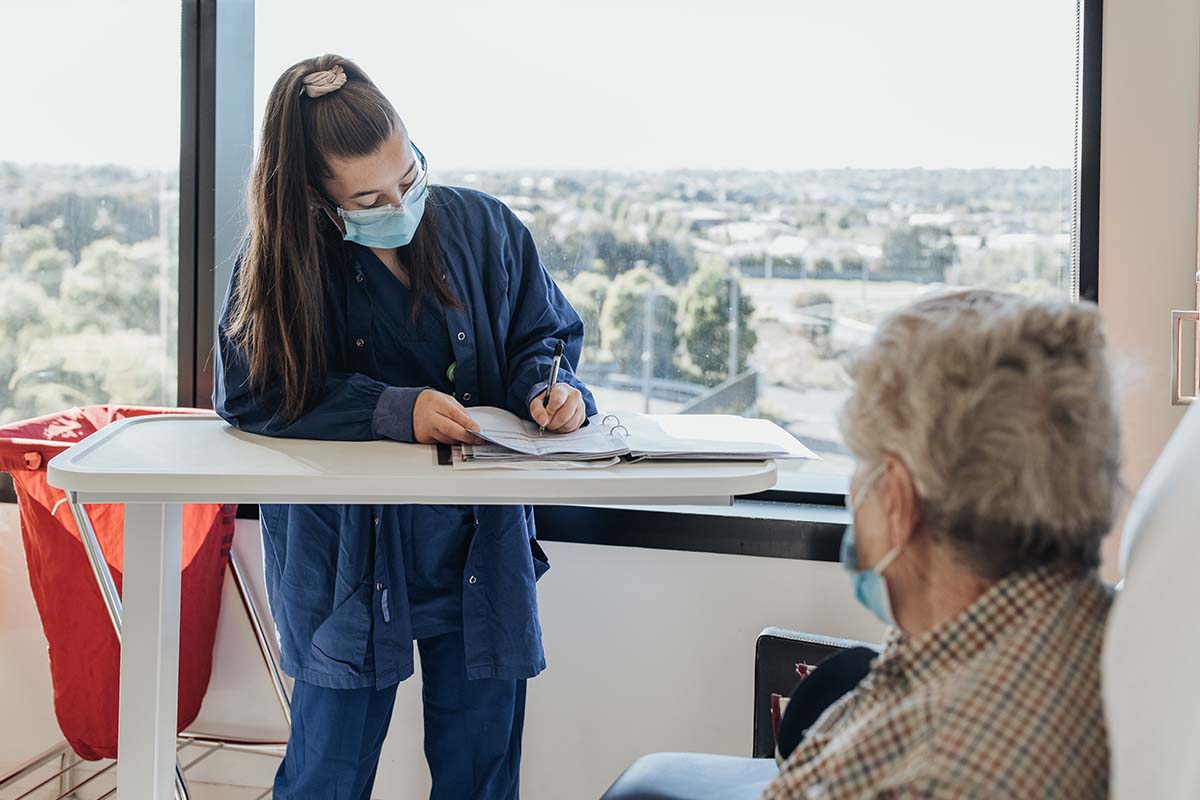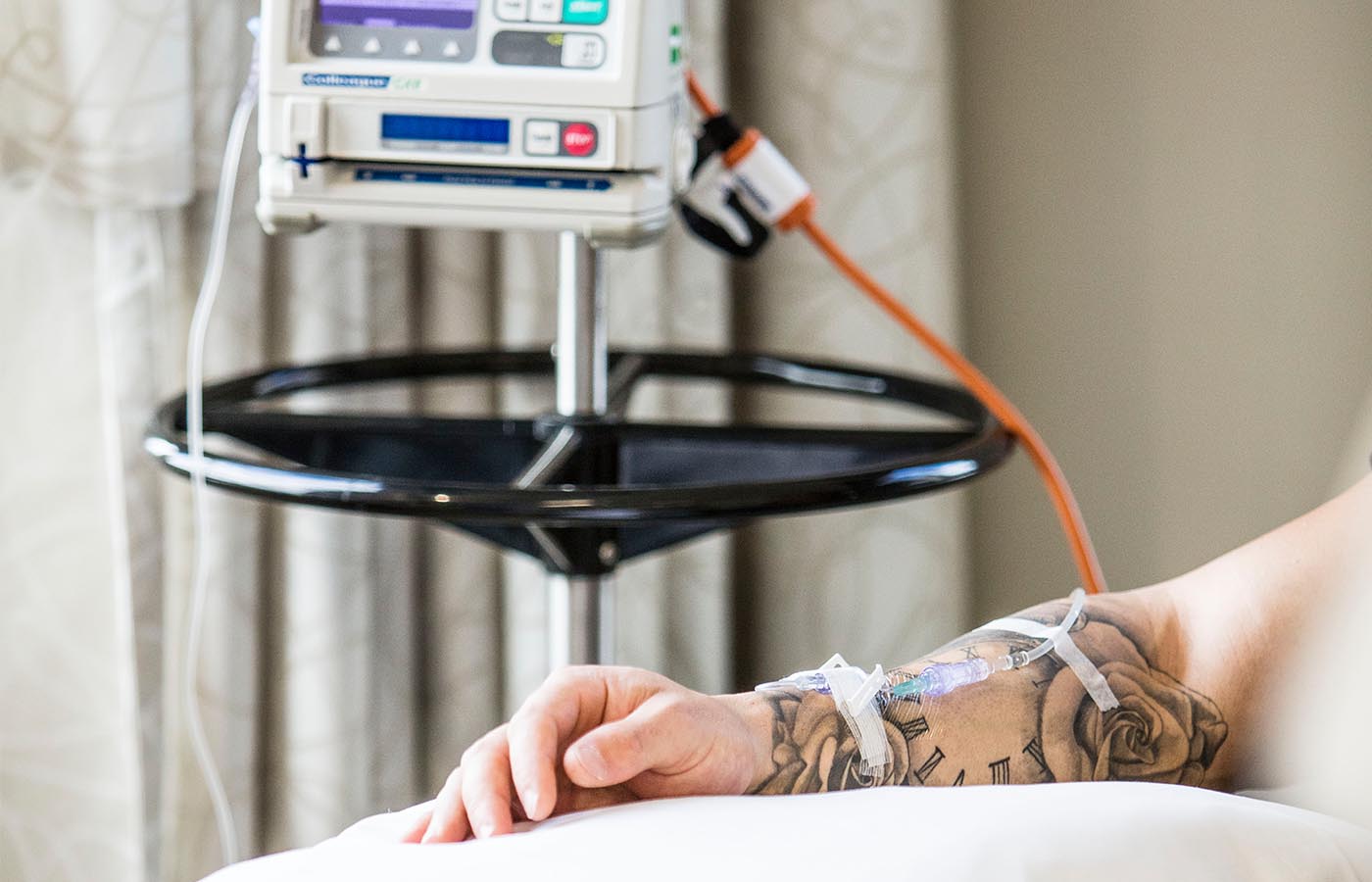Our specialists work to give every Epworth patient the very best care, to make a difference for you and your loved ones.
Each person’s experience of blood cancer is unique. This general information can help you know what to expect at Epworth and the Centre for Immunotherapies and Snowdome Laboratories.
The first appointment
Your first meeting with the haematologist is a chance for them to understand your individual needs. They will speak with you about your symptoms, medical history and tests needed. This is important even if you’ve seen other haematologists before.
You may like to write down any questions before this appointment and have them in front of you. Your haematologist is happy to explain anything you don’t understand or communicate it in a new way.
If you don’t have a diagnosis yet, you can read more about getting a blood cancer diagnosis.
Deciding on your treatment plan
Your haematologist consults with a multidisciplinary team (other health professionals), to tailor a treatment plan just for you. Your treatment plan shares important details, including:
- treatment intent (aim or goal)
- dates of treatments and appointments
- medication and doses.
Because blood cancers are highly individual, treatment is informed by cutting-edge science. Scientists analyse how your cancer cells look to find your exact cancer sub-type. If recommended, your haematologist orders genomic testing to search the cancer DNA for mutations (abnormal changes). This may give your haematologist more information to match the right treatment to you.
You’re welcome to involve your partner and loved ones in decisions about your care. It can be helpful to have their extra support to process your emotions or take notes.
Some people feel reassured to know every detail of treatment and play an active role. Others prefer to have loved ones and health professionals lead. We support your choices and understand that your preference may change.
Read our Patient Guide
Types of treatment for blood cancers
Because different blood cancer types behave differently, they don’t all share the same type of treatment. Your haematologist will explain the treatment for your individual situation. Your haematologist will take into account your:
- age
- general health and activity levels
- other illnesses (comorbidities)
- cancer sub-type
- results of genomic testing, if ordered.
Treatments for blood cancer include watch and wait, chemotherapy, radiotherapy, immunotherapies and clinical trials.
Watch and wait
This is a time of active monitoring but no treatment. While in watch and wait, you stay in the care of your haematologist with regular appointments and checks.
Your haematologist will always explain why they recommend this approach. It is more common in slower growing cancers, such as indolent lymphomas and chronic leukaemias.
Chemotherapy
Chemotherapy is a common treatment for blood cancers. It treats blood cancers by stopping the growth and spread of cancer cells. However, chemotherapy can affect and damage the body’s non-cancer cells too.
You can receive chemotherapy by:
- an infusion (IV/drip into the bloodstream)
- oral tablet (by mouth)
- injection subcutaneously (under the skin).
Chemotherapy is often combined with other treatments including radiotherapy, immunotherapy and targeted therapies.
Radiotherapy (radiation therapy)
Radiotherapy treats blood cancers by pointing X-ray energy to a specific part of the body. This X-ray energy can kill cancer cells, although it may also damage non-cancer cells in this area.
Immunotherapies
Immunotherapies are a category of treatment which include targeted therapies, stem cell transplant and CAR T-cell therapy. All immunotherapies aim to boost or help your immune system fight cancer. Your immune system’s role is to protect and defend against viruses and diseases.
Your haematologist will speak to you about where immunotherapies may fit into your treatment plan. Currently, immunotherapies are not a first line treatment for most people.
At the Epworth Centre for Immunotherapies and Snowdome Laboratories, we are proud to help make these innovative treatments more accessible in Melbourne.
Clinical trials
Trials test and investigate a wide range of blood cancer treatments, including the ones listed above. Your haematologist may recommend a clinical trial as a way to access a treatment not yet available to the public. Learn more about clinical trials and research.
See a specialist haematologist
The Epworth Centre for Immunotherapies and Snowdome Laboratories is a Centre of Excellence in blood cancer patient treatment and care.
You can expect personalised care as you navigate diagnosis, management and treatment with our specialists in East Melbourne, Box Hill, Geelong and Richmond.


